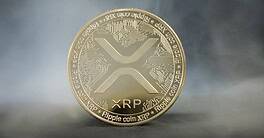Data regarding a ship’s location or a container’s status historically has been of interest to a relatively small audience. But things are changing.
Since the Covid-19 pandemic and the logistical and supply-chain challenges that came with it, corporate financial and operational professionals have started to realize the potential economic value of such data and its usefulness in cost-management decisions.
International organizations have pushed for better coordination between the public and private sectors that share this space and its wide-ranging fields of purview, from port ownership and management to security. The World Economic Forum, for instance, has launched a maritime working group, pushing for better information sharing and coordination among public and private entities.
This working group identified the quality, integrity and real-time availability of trusted data, focusing on key performance indicators and artificial-intelligence data-driven risk management systems, among others, as crucial factors behind better information sharing and coordination.
Recent geopolitical and national-security developments have highlighted the uncertainty and ongoing risks that are unique to international shipping operations. Houti attacks in the Red Sea have prompted many maritime companies to change their sailing routes, increasing pricing and causing delays in delivery times. Meanwhile, severe droughts forced the Panama Canal to reduce shipping capacity by more than 30%.
These new realities have given rise to startup companies focused on data collection, gleaning actionable information from data sets, and connecting shipping data to other systems. For example, Winward, a UK-listed tech company, provides insights to help identify and track maritime criminal activities in real time. Other companies, like FleetMon, can provide maps for real-time vessel tracking and historical data for ship movements, a critical part of supply chain knowledge. Mainstream financial-data companies like IHS Markit, meanwhile, are adding maritime data to their portfolios.
The growing interest in maritime information can lead to positive and negative action items, whereby companies can manage their supply chain effectively in real time or avoid areas where significant risk is looming, based on early-detection data.




